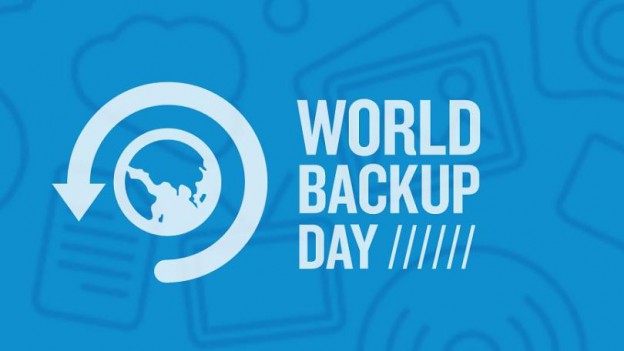Cloud Storage for Charities - What are the Options?

What do we mean by online cloud storage?
It is important that as service users, we understand what happens to our data when it is uploaded to the ‘cloud’. Cloud storage really means the usage of any company or organisation’s servers via the Internet. Companies such as Google, Amazon, Microsoft, and BT all offer data storage facilities either for free or for a small fee. Cloud storage can be used by individuals, organisations and anyone else with Internet access for that matter. What is important about cloud storage for charities, however, is that it must strike the balance between being cheap and yet also highly secure. So how do you strike that balance as a charity?
How do I know that my data is secure?
The main consideration for any charity is knowing where the data is being stored and how to access it at any given moment. Cloud storage for charitable organisations and any companies for that matter absolutely must be secure and rely heavily on the Internet. Do you have a reliable Internet connection? Can you access it from anywhere? How much access do you want to give your trustees and employees? Do you understand the GDPR regulations and know how to comply with them?
What are the other possible options?
As an organisation, it is important that you really think about how you want your data to be stored? What happens when your database gets bigger or you want a more sophisticated website or communication channel with your customers? You can choose one of the cheap and freely available tools but bear these considerations in mind. You can also choose to use a company who will provide their own hosting solutions for you; these third party companies will have to abide by security rules, must offer disaster recovery and backup options and must abide by GDPR data protection regulations. As you are a charity, many companies will be willing to offer these services at a reduced rate, and you would be paying for them to store your data in one place with technical expertise at hand. This also reduces the chances of your data being accessed insecurely by one of your trustees or employees.
What would you recommend?
Really, this all depends on the size of your charitable organisation and your levels of in-house expertise. If your data is not too sophisticated, then any of the offerings by Google, Microsoft, Amazon and so on are sufficient. The only downside to these is that you won’t have ready access to technical help and assistance if you run into problems. If you are looking to radically increase your market and interest in your charity, then you may wish to consider the use of a specialist cloud data storage company for peace of mind.
How to Choose the Best Cloud Storage Companies in the UK
Best Cloud Storage For Business
Data is the lifeblood of businesses and thanks to trends like big data and the Internet of Things, we’re accumulating more of it than ever before. This has the effect of putting pressure on storage. Whereas in the past data would have been kept in house, the demands of the latest systems mean that this is often impractical as well as being an expensive option.
No surprise, then, that firms are turning more and more to cloud storage. This offers a scalable solution with data available from anywhere there’s an internet connection, so it’s easy to see the attraction for businesses. But what should you look for when choosing a cloud provider? At first sight they may all appear to be similar, but there are some key questions to be answered when deciding who to trust with your data.
Data Centres
The data centre is at the heart of storing information in the cloud. When assessing service providers it’s important to understand more about their data centre. The first question to ask is about location. If you’re storing sensitive information like health or financial records, you may not want to have them stored overseas, indeed you may be prevented from doing so by compliance rules.
You also need to ask about disaster recovery arrangements. How is the cloud data centre protected from power outages and from natural disasters like floods?
Security is a key factor too. The data centre needs to be physically secure, but you also need to ensure your data is safe while it’s in the cloud. You should be looking for basic firewall and anti-virus protection, but also for other measures like encryption of data and multi-factor authentication for accessing it. The cloud supplier’s overall security policy needs to be considered too, for example checking whether they carry out regular security audits and checks.
Scale and Support
Data is big business and as all organisations have storage that needs that grow over time, it’s important that storage can be scaled. This is one of the big focal points of using the cloud, but you need to ensure that your service provider has the capacity needed to cope with growth and that they can scale up quickly to meet increased demands.
Many cloud providers will offer a degree of self service operation via a customer dashboard. This allows you to configure your storage, create virtual machines, increase storage pools to meet demand and so on. When choosing a cloud service you need to look at how easy this is to use and how well it meets your day-to-day needs.
You need to understand the pricing structure of the cloud service too. If you exceed pre-agreed storage limits, for example, you don’t want to be hit with an unexpected bill. Similarly you don’t want to be paying for much more storage than you actually need due to inflexible policies.
If you’re entrusting your data to someone else, you need to be sure that you’ll be able to access it when you need it. This shines the spotlight on the cloud provider’s support. You need to know what support arrangements are in place and how quickly the supplier will respond to any problems. While this will usually be enshrined in a cloud service agreement, you might want to talk to existing customers to see how it works in practice.
Ask about downtime too. If you’re heavily reliant on data that’s stored in the cloud it can cause major business disruption if you can’t access it. While this places emphasis on the supplier’s systems and networks, it also means that your business internet connection needs to be reliable.
There’s no doubt that the cloud has many benefits for businesses which is why it’s proving so popular. It can also free you up to concentrate on other aspects of your operation. Remember that your data is vital to your company, so trusting it to someone else is a major step. You can’t afford to take selecting a cloud provider lightly.
4 Points to Remember while Choosing a Data Storage Company for your Business
As a business/company owner, your first and foremost responsibility is to grow your business into a flourishing one. Get the best out of your workers and provide all that is appropriate for your customers. Now, having said that, it is also your duty to keep a record of everything that is happening in your organisation. Especially exchange of documents, storing of files, entering data, etc. Gone are the days when a manual check of everything was mandatory. Those were the days when people had to store their data on multiple hard drives. Most of which, if not stored properly, were prone to getting destroyed, stolen or tampered with. However, with the changing times, the storage system has also changed. Technology has made things faster and easier, it has brought to us the cloud data storage facility. It is this system that has introduced us to the most unique way of securing and storing data. Yes, storing confidential information on the cloud now is not only easy but also very safe. So, as a business owner, your worry of losing valuable information is long gone.
There are many cloud data storage companies those have come into existence in recent times. Getting in touch with these would be an ideal way to handle online backup of data. One of such companies providing online backup in the UK is Safe Data Storage. With a fully managed support service and backup system, this company provides total security and multiple backup opportunities for its clients.
Here are 4 points to remember while choosing on a data storage company.
Ask a Few Questions: Since it is your data that needs to be safely stored, it is important that you ask a couple of technical questions.Will you be given a fully managed storage solution? Will your storage related issues be resolved or will you be left to resolve them on your own?Will you be charged for initial backups and restores? A detailed review of these questions will leave you choosing the right option.
Make a List: After you’ve made a technical review of the storage providers, make a list of the preferred data storage companies.Check their features thoroughly and see if they match with your requirements perfectly. After all it is your company’s confidential documents you would want to store in the most secured and effective way.
Do a Background Check: After you’ve shortlisted the data storage companies, do a thorough background check to look for reviews and highlights. Ensure to take all precautions to choose the right vendor.
Check What They have to Offer: It may sound strange, but it is essential to check what the cloud data storage companies have to offer you with. You may often find disparity between what is stated in the website and what the company offers in reality. It is, therefore, important to clearly understand the offerings at the very beginning.
Keeping in the mind the above-mentioned points will surely help you choose the right data storage company for your business. A company that will provide you with the most appropriate storage service and keep your data safe at all times.
Safe Data Storage ranked among best cloud backups

Here at Safe Data Storage we are delighted to have been ranked as one of the best cloud storage providers in the UK for 2017 by a recent guide on a leading industry website.
Cloudwards released their ‘Best Online Backup UK Services for 2017′ guide earlier this month, and we are very proud to have been included in their top five recommendations for cloud backup services providers in the country.
The guide aims to inform readers about the best cloud storage options on the market in order to help them choose a service provider that best meets their needs.
Among the parts of our cloud backup services that Cloudwards praised were the fact that we offer a free trial, with no credit card details required, the speed with which information can be recovered, and how our backup software allows you to set what time is best for you for backups to occur.
They were also impressed with our excellent security protocols which allow us to provide secure data storage and put our customers’ minds at rest, and the fact that our software means backups can happen when your computer is not being actively used.
In addition, Cloudwards’ reviewers liked that our software can be used to provide secure data protection both for individual computers and full server systems.
We pride ourselves on offering the best cloud storage around, so it’s great to hear amazing reviews confirming this. Get in touch today to see how our online cloud backup can help your business protect its data, or take our free trial to experience our high-quality service for yourself.
Headquartered in Orpington, Greater London, Safe Data Storage have been providing secure cloud backups for businesses, educational institutions and charities since 2004. We have ISO 27001-accredited servers in London and Bournemouth and provide extensive, entirely UK-based technical support.
Your Halloween data loss horror stories

With Halloween just around the corner, we thought it was time for scariest type of surprise there is… data loss horror stories! We asked around the internet, in forums and on social media, for your worst data losses. Here’s what we found. Lock your doors and read on…
Enough to make a grown man cry…
We all know that data losses can have just a particularly devastating effect on businesses as the amount of data involved is often much larger than with individuals’ data losses. For small, local businesses, a huge data loss can even threaten their entire business’ survival.
“Data loss was responsible for the first time I saw a grown man cry,” Twitter user Jon told us. “I was a service engineer and had to tell a small business owner that his hard drive was dead.
“He lost all his accounts data going back forever.”
Stubbornness can be costly for business – very, very costly
“I’ve seen a business owner refuse to spend any money at all on a backup solution and lose 10+ years of data,” an IT professional and tech forum moderator told us. “And I see at least one post like that a week, if not more.”
Another user on a tech forum described a ‘sphincter-tightening experience’ in which he thought he had lost years’ worth of a client’s sales data after a computer malfunction. Luckily he had a backup, and was able to restore almost all of the data, only having to manually re-enter the last few months’ worth.
Many businesses have commercially sensitive data, such as information about their customers, products, or processes, that if lost and not backed up could have devastating effects for both company and customer. A significant data loss can set a business back by several years in its development.
But it can be just as devastating for personal data
“I had a 1TB external hard drive full of all my photos and other irreplaceable stuff and it got corrupted,” a Reddit user confessed to us. “I couldn’t recover everything so I lost all of my files.”
Your personal data can contain priceless memories that don’t exist anywhere else – meaning that without a backup, once they’re gone they’re gone forever. Is it worth taking that risk?
So, what can we learn from these horror stories? One thing is clear: ensuring you have a reliable backup of your data is absolutely essential in order to avoid risking your business’ survival or your school project. No wonder that, according to a recent survey by Advanced, a software company, four out of five business owners are considering using cloud backup data storage.
Make sure you don’t join the list of victims this Halloween…get in touch today to get your data safely backed up.
What the Facebook data breach tells us about the public’s attitudes to data security

In January we consulted our crystal ball and predicted that data – in particular the public’s data privacy, and large-scale breaches of it – would be headline news in 2018. What we didn’t expect was to be proved right so soon by the massive Facebook data breach exposé that has dominated the headlines this month. Feel free to ask us for this week’s lottery numbers…
Facebook users across the world are still reeling from reports that 50 million Facebook profiles were harvested by Cambridge Analytica, a UK-based data analytics company, in an enormous data breach for use in political campaigns including Donald Trump’s presidential bid and Brexit.
Facebook users’ ‘likes’ and other information on their profiles was used to target them with political propaganda encouraging them to vote for the candidates Cambridge Analytica was working with.
The effect of the news of the breach has been to make consumers more aware of their data and how it is being used. Cambridge Analytica’s data acquisition can be traced back to Facebook quizzes in the early years of this decade where users blithely granted access to their and their friends’ data in order to take part in quizzes.
Already, as a result of this story breaking, it’s hard to imagine Facebook users casually signing over their data to third parties en masse any longer without knowing how it will be used. Indeed, many users have left the platform altogether out of concerns about the security of their data.
For businesses who handle sensitive data about their customers or users, there is a clear lesson to be learnt from this: consumers are growing increasingly aware and passionate about their online privacy and how their data is used.
It seems clear that data security will become an increasingly important factor to consumers when they are choosing between services and products.
Of course, the Facebook breach has happened against the backdrop of GDPR’s introduction, which has been worrying businesses by itself. Organisations are required to be GDPR-compliant by the fast-approaching deadline of 25 May. Read more on GDPR on our blog.
GDPR gives individuals more access to, and rights over, their data and how it is used. It will force businesses to reassess what data they collect on employees and customers and the collection of all of this information is strictly necessary.
In addition, individuals have the ‘right to be forgotten’ if they object to some of the data being collected about them.
This is clearly a landmark moment for the data industry, with consumers awakening to the importance of keeping their data secure and organisations increasingly being held to account about their data practices.
Safe Data Storage provide secure cloud backup services for businesses, education providers and charities, giving you peace of mind that your data is safe.
For more information, get in touch.
6 Factors to Help You Choose the Right Cloud Partner in the UK
Branding
Branding is immensely important in building, sustaining and growing a business, so having to share the spotlight with another firm is not ideal. When working with a Partner, you will want to be able to put your own personal stamp on any of the products and platforms that you ultimately offer to your client base.
Ideally, you will want access to white-labelled services which are not explicitly tied to the provider but can instead be fully customised and kitted out with whatever branding you feel is appropriate. This will allow you to use your firm’s logo on the sign-up and log-in screens, reinforcing its impact every time that clients visit.
Location
While it may be tempting to opt to work with a cloud reseller that operates internationally and can thus offer the cheapest possible prices for things like backup and storage solutions, this can lead to issues. Legal and regulatory restrictions may prevent clients in your industry from storing data overseas, so the location of the facilities which a partner operates should be relevant in the decision-making process.
Look out for partners that are not only based domestically but also operate all of their hardware on home turf rather than choosing to outsource this to facilities on foreign soil. This will help to avoid any complications further down the line, since the location of data is relevant in industries such as health care and finance.
Trial Offers
Coaxing clients into committing to the services can be taxing, especially if they are required to make any kind of upfront payment or sign up to a fixed contract. This makes it important to choose partners that allow you to provide free trials to clients with no obligations attached.
This approach is effective in the enterprise and consumer markets alike, giving people 30 days to experiment with a service from a cloud reseller in the UK before they decide whether or not it is a good fit for their needs.
The best IT reseller will be able to offer you an unlimited number of trials which can be passed on to clients, allowing as many as possible to sign up from your current and prospective stable of customers. This is not only a good way of attracting new clients but also of retaining existing ones and preventing them from switching to rival services.
Affordable Pricing
The cloud is such an appealing prospect for businesses because, unlike traditional IT, it is not something which requires upfront investment. Instead, it is possible to work with partners and gain access to the data centre resources that they offer immediately, with no initial outlay for hardware, premises or staff to worry about.
If steep upfront costs are off the table, then the partner in question will represent a good prospect for any business. But it is also important to look at the prices of the services and packages that are available so that it is simple to calculate the value that is achievable via adoption.
Infrastructure Elements
By working with a partner and endowing their services with your company’s branding, you will be putting a lot of trust in a third party, since they are effectively representing you directly, and if outages occur or errors arise, it will be your reputation that bears the brunt of the repercussions.
Make sure that a partner not only operates UK data centres but that they also have services which are properly secured both physically and digitally, along with the ability to provide continuity by replicating information across multiple servers so that hardware failures do not lead to data loss.
Support
While it may not always be a priority during the procurement process, the availability of support services will become important as soon as you start using a cloud partner’s solutions. Check the types of support on offer, whether online or over the phone, and also look for packages that allow support for clients to be outsourced.
By carefully considering and assessing your needs, it should be possible to use these factors to find the best possible cloud partner for your business.
What is World Backup Day? Our Guide

If you’re an avid Twitter user, and especially if you work in technology, you may have seen publicity about World Backup Day a few weeks ago, which was celebrated on March 31st. But what is the purpose of this day and how did it start?
Make sure you’re ready for next year’s World Backup Day with our handy guide.
Background
World Backup Day was started in 2011 by digital consultant Ismail Jadun. It is celebrated on March 31st every year – a date chosen because it’s the day before April Fools Day…and of course you’d have to be a fool not to backup your data!
The day comes from humble roots; Jadun conceived the idea when he saw a Reddit post by a tech user who had lost their hard drive and wished someone or something had reminded them to back up their data.
“I thought it was a wonderful idea,” said Jadun, who then set up a day to do just that. “It’s wonderful to see people and schools around the world promoting the importance of backing up our data.”
What does it involve?
Of course, backup up their data should be on business’ minds all year round, but World Backup Day serves as a useful way of reminding people of the importance of securing their data and brings the matter into the public consciousness for a period before and after March 31st each year.
The day also raises awareness of the various ways data is at risk if not backed up, from devices being hacked or stolen to accidental deletion to viruses.
The day’s founders ask internet users to “take the pledge”, which goes as follows: “I solemnly swear to backup my important documents and precious memories on World Backup Day, March 31st.”

Twitter was flooded this year with users vowing to ‘take the backup pledge’
This year’s World Backup Day is arguably the most important yet with the impending implementation of the new GDPR, which will change many business’ data storage and protection practices.
A survey conducted for this year’s World Backup Day by its organisers found that 30% of users have still never backed up their data. Though this shows a slight reduction from figures in previous years, this is still a significant proportion of users whose data is not secured.
Safe Data Storage provide cloud backup solutions for businesses, schools and charities. For more information, get in touch today.
Data D-Day: GDPR Finally Arrives

It’s been rumbling threateningly towards UK businesses for a long time now, but tomorrow (25 May 2018) marks the deadline for businesses to become GDPR-compliant, a date otherwise known as Data D-Day.
Businesses can’t say they haven’t been warned – anxious chatter about GDPR (the General Data Protection Regulation) has been going on for months – but that hasn’t stopped many companies from putting off confronting the new regulations until the very last minute.
This isn’t surprising: there’s a reason why people are using audio of the regulations being read out to help them sleep. Trawling through the long-winded legal jargon and coming up with a plan to make your business GDPR-compliant can be tedious and hard work.
Unfortunately, like all jobs that you can’t put off forever, planning for GDPR is very important and needs to be dealt with eventually. Businesses need to ensure that only strictly necessary data is kept on customers, that up-to-date records are maintained of what data is stored where, and that processes are in place for keeping data safe.
The new regulations will put power firmly in the hands of individuals, who will now have the right to ask what information a company holds on them and request its correction or deletion if appropriate. This is the so-called ‘right to be forgotten’.
Put simply, many businesses will have to completely rethink their data collection and storage practices, and will likely have to audit the data they currently hold to ensure it meets the incoming regulations.
This is where Safe Data Storage can help. Our cloud backup services offer secure online data storage for businesses, charities and schools, allowing you to put your mind at rest knowing your data is safe.
With our services, all data stays in the UK at our two data centres, located in London and Bournemouth.
Data is fully encrypted at all points of the backup process, protecting the privacy of the individuals to which the data pertains.
For more information about how our services can help your business become GDPR-compliant, see our guide to GDPR, or get in touch today.
The Importance of Cloud Data Backup & Storage

Why Do You Need Cloud Data Backup & Storage?
Cloud data storage is becoming more popular in all professional environments. As a nation, and in-fact a country we are producing more digital data than ever before. With this unparalleled growth it is unsustainable to continue to store data in tangible objects.
Many businesses, charities and educational institutions now utilise secure offsite data storage, becoming more efficient in the process. With an increased market shift to “the cloud”, there is a new wave of concern surrounding the security of data online. Online data security is even more relevant following the recent activation of the GDPR regulations. Find out more about GDPR and Cloud Data Storage.
UK-based Cloud Backup
You can sleep soundly at night, knowing your data is stored securely on our own servers. We own all our servers meaning your files, photos and data are not shared with any third parties or other businesses. Storage is split across our two data-centres located in London and also Bournemouth where your data is replicated and stored separately. Services are available for Single User Backup or Business Backup depending on the nature of your requirements.
Encrypted Data Storage
To increase the level of protection you receive, all stored data on servers is encrypted as standard. Data you backup with Safe Data Storage remains only yours and can only be accessed by you.
From the point of initial collection at your PC terminal or other device, data is covered by an Advanced Encryption Standard (AES). Following this, any connection between you and the server to access files and data is covered using a SSL 129-bit channel.
What this really means is that your data, what ever this may be, is converted into a randomised selection of numbers, letters and symbols. Without access to an encryption key, to unlock the data it remains useless and unreadable.
Backup & Restore
One of the most important features of cloud data storage and data recovery software is knowing you can avoid disastrous data loss. Across our servers files are stored in multiple isolated locations for prevention from complete data loss. Regardless of your industry or skill, no longer having the ability to access customer, sales and other forms of data could have a hugely detrimental impact on the service you are able to offer. Additionally, subsequent data loss from unsecured storage could pose significant ramifications under GDPR regulations.
It can be incredibly easy to delete the wrong file or press something you shouldn’t have. With fully backed up data you need not worry, your files can simply be restored within minutes – even for the less tech savvy among us. No loss, no wasted work, just peace of mind your data is in safe hands.
If you would like to receive more information about being able to backup on cloud systems and restore your commercial and sensitive data, or simply want to know the best service for your needs, get in touch with a member of our team.
Recent Posts
- Announcing our new Veeam partnership and capabilities
- Changes to Microsoft Authentication for Exchange Online C2C Backups
- What is C2C backup?
- Three Main Types of Schedule Backup Software
- Secure Your Business with Right Backup Software
- Backing Up Your G Suite Data
- Safe data storage for educational institutions
- Why you need backup for Office 365?
- Online backup for a small business
- Cloud Storage for Charities - What are the Options?
Categories
- All
- Cloud Backup (21)
- Cloud Reseller (9)
- Cloud Storage (11)
- Data Recovery (6)
- Data Storage (10)
- DR Services (1)
- Education Backup (11)
- Fun (1)
- In the Community (1)
- In The News (10)
- ISO 9001:2015 certification (1)
- IT Resellers (8)
- News (11)
- Old Posts (75)
- Online Backup (12)
- Online Data Storage (6)
- School Backup (9)
- Secure Online Storage (11)
- Technical (10)